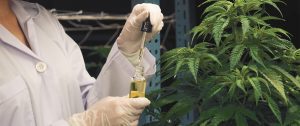 In recent years, the landscape of cannabis consumption has evolved dramatically, with the legalization of both medical and recreational marijuana in many parts of the country. As the cannabis industry expands, so too does the market for THC (tetrahydrocannabinol) related products, which are responsible for the psychoactive effects associated with marijuana use. However, along with this growth, a concerning trend has emerged – the proliferation of THC imposter products. These fake or synthetic alternatives pose significant dangers to both public health and the credibility of the legitimate cannabis industry. You can find these products online in addition to gas stations, convenience stores, and some smoke shops.
In recent years, the landscape of cannabis consumption has evolved dramatically, with the legalization of both medical and recreational marijuana in many parts of the country. As the cannabis industry expands, so too does the market for THC (tetrahydrocannabinol) related products, which are responsible for the psychoactive effects associated with marijuana use. However, along with this growth, a concerning trend has emerged – the proliferation of THC imposter products. These fake or synthetic alternatives pose significant dangers to both public health and the credibility of the legitimate cannabis industry. You can find these products online in addition to gas stations, convenience stores, and some smoke shops.
Understanding THC and Its Effects
THC, the primary psychoactive compound found in cannabis, interacts with the endocannabinoid system in the human body, leading to various physiological and psychological effects. These effects can include relaxation, reduced inflammation and pain, euphoria, and decreased insomnia.
The Rise of THC Imposter Products
THC imposter products are designed to mimic the effects of THC without being derived from natural cannabis plants. These products synthesized in a lab, are structurally similar to THC, but their effects can vary widely and are often unpredictable. Some imposter products might be marketed as legal alternatives to THC, exploiting regulatory loopholes or misinformation about their contents.
Not all THC products are unnatural, some like Delta-8 or Delta-9; are found in the hemp plant and can be safely extracted. They are almost always converted from cannabinol (CBD) in a lab to THC or other desired molecules due to the low cost of production. If done in a responsible laboratory, this synthesis can be performed safely, but there is little to no oversite and no mandate on final product testing.
The Dangers They Pose
One of the most significant dangers of THC-synthesized products is the lack of oversight and regulation. Unlike natural THC products found at regulated MMTC’s or dispensaries, the composition of these products is often uncertain and may contain harmful chemicals that can lead to serious health consequences. Additives are required for chemical synthesis and to change the clarity and color of the finished product. Short-term effects can range from anxiety, panic attacks, agitation, and hallucinations to increased heart rate and paranoia.
Legal and Ethical Concerns
The widespread availability of THC products that have not been naturally extracted threatens to undermine the progress made in legalizing and regulating cannabis. These products often exploit regulatory gaps in the farm bill, leading to confusion among consumers and law enforcement. This situation could potentially erode public trust in legitimate medical cannabis products and hinder the responsible growth of the industry. Since the grey market of these products has expanded, ER visits and calls to the nation’s poison control centers have increased due to inaccurate dosing leading to exponential intake of THC and related cannabinoids. These products can be particularly appealing to youth and individuals seeking alternatives to medical cannabis consumption methods.
Hemp Flower
A particular synthesized THC product to avoid is infused or sprayed hemp flower. To legally sell smokeable flower that will medicate or provide a psychoactive effect, proprietors purchase bulk hemp flower and spray hemp-derived or converted, distillate of Delta-8, Delta-9, or Delta-10 onto the flower. They may also use HHC, THC-O, or other unregulated and untested cannabinoids.
This is the only legal way to sell “flower” that will provide the high without using a legitimate medical card and purchasing from a regulated MMTC. Spraying hemp flower solely benefits those who sell it, and the result is a very sketchy product.
Although you can find safe products that contain Delta-8 and Delta-9, that have been professionally extracted or converted and batch tested after, it is almost impossible to guarantee the authenticity of the end product.
Addressing the Issue
To tackle the dangers posed by THC imposter products, several key steps can be considered. Governments and regulatory bodies need to establish clear guidelines and regulations for cannabis and cannabinoid-related products. This includes strict testing and transparent labeling requirements to ensure consumer safety. This occurs in the current medical cannabis market but does not extend to unregulated hemp-based sales.
The danger of widespread THC imposter products is not one to be taken lightly. Unpredictable effects, potential health risks, and the threat they pose to the credibility of the cannabis industry all underscore the need for action. Regulatory agencies should collaborate to address this issue head-on, ensuring that cannabis consumers have access to safe and authentic products while safeguarding public health and the progress made in cannabis legalization. Through regulation, education, and enforcement, the dangers posed by THC imposter products can be minimized, allowing individuals to make informed choices about their consumption.
Compassionate Healthcare of Florida
www.flmmjhealth.com
Call for Appointments (833) 633-3665










